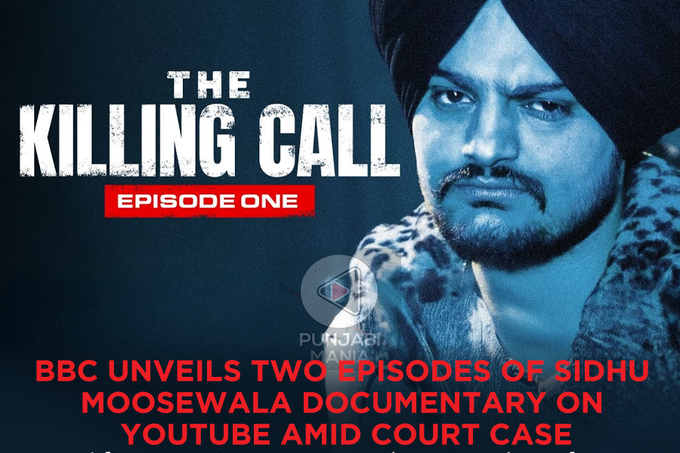BBC Releases Sidhu Moosewala Documentary: On Sidhu Moosewala’s birth anniversary, the BBC World Service stirred fresh controversy by releasing two episodes of its investigative documentary on YouTube, despite an ongoing court case seeking to halt its screening. The move came just hours ahead of the documentary’s planned public showing in Mumbai, drawing sharp reactions from the late singer’s family and fans alike.

Sidhu Moosewala, born on June 11, 1993, was murdered in a brutal daylight attack on May 29, 2022, in Jawahar Ke village, Mansa district, Punjab. The release of the documentary, which includes previously unheard accounts and sensitive interviews, comes at a time when Moosewala’s father, Balkaur Singh, has legally challenged the film’s public release. A petition filed in a Mansa court aims to secure a stay, with the next hearing scheduled for June 12. Singh’s legal counsel, Satinder Pal Singh Mittal, expressed hope that the court will intervene to prevent wider dissemination of the documentary.
Titled “The Killing Call,” the first episode delves into Moosewala’s early life, meteoric rise in the music industry, and the controversies that followed him. It traces his journey from the rural heartland of Punjab to international recognition in Canada’s hip-hop scene. The second episode shifts focus to the chilling details of his murder and the unresolved mystery surrounding it.
Crucially, the documentary features a rare audio interview with gangster Goldy Brar, the alleged mastermind behind Moosewala’s killing. Brar had publicly claimed responsibility for the attack shortly after it occurred but remains a fugitive nearly three years later. The film also includes testimonies from Moosewala’s close friends, journalists, and senior police officers from both Punjab and Delhi—many of whom are speaking out for the first time.
In its official description, BBC Eye Investigations outlines the project as a comprehensive exploration of Moosewala’s life, his clash with criminal elements, and the political currents that may have contributed to his demise. The documentary claims to shed light on the deeper motivations behind the murder, suggesting a complex web of rivalry, power, and fear.
The release has reignited debates over media ethics and the rights of grieving families versus public interest journalism. Even as Moosewala’s family planned to commemorate his legacy with the launch of an extended play of his unreleased songs, the BBC’s decision has overshadowed the occasion with controversy and legal tension.
As millions across India and the Punjabi diaspora continue to seek justice and clarity in Sidhu Moosewala’s murder, the BBC documentary has added new layers to an already complex and emotional case. The public response, legal outcome, and implications for ongoing investigations remain to be seen.
